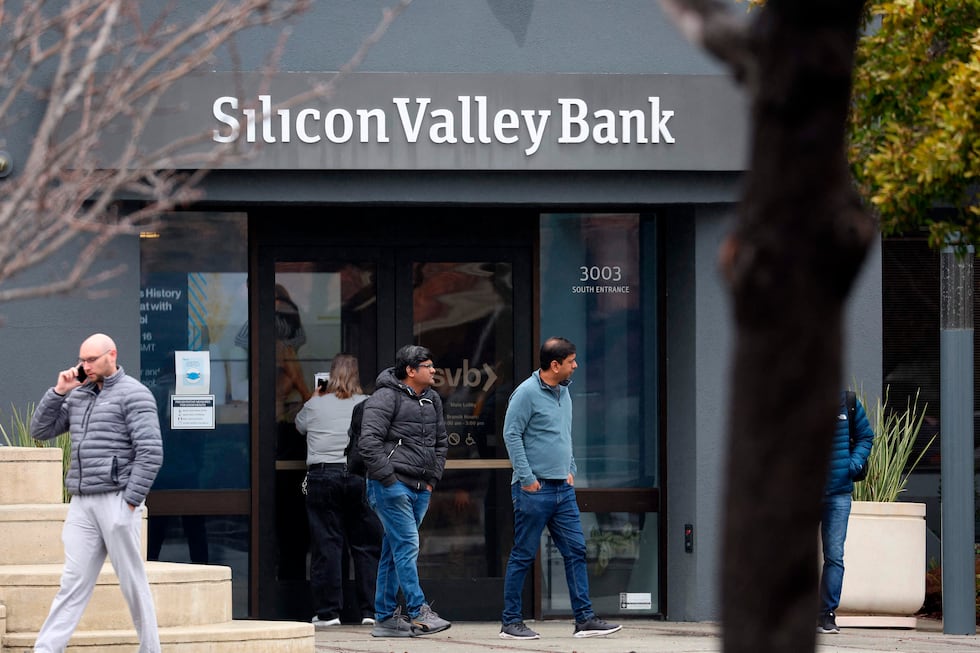The entity will acquire all the deposits and loans of the failed bank from the deposit guarantee fund, which estimates the cost of the collapse at 20,000 million
First Citizens Bank has closed a deal to acquire all of the deposits and loans of failed Silicon Valley Bank from the Federal Deposit Insurance Corporation (FDIC), the regulator said in a statement. “The FDIC has entered into an agreement for the purchase and assumption of all of the deposits and loans of Silicon Valley Bridge Bank by First-Citizens Bank,” the release issued before the opening of European markets said.
After a two-week search for a buyer, and following the collapse and state intervention of the entity specialized in loans and deposits to entrepreneurs, the authorities have managed to get a regional entity based in Raleigh, North Carolina, to take over most of the assets, some 72 billion dollars out of a total of 109 billion, according to Reuters. “The 17 former Silicon Valley Bridge Bank branches will open as First-Citizens Bank on Monday, March 27, 2023″, the FDIC assures. Silicon Valley customers “should continue to use their current branch until they receive notice from First-Citizens Bank that systems conversions have been completed to allow for full service at all of its other branches,” they add.
Silicon Valley depositors will automatically become First-Citizens Bank depositors. All deposits assumed by First-Citizens Bank “will continue to be insured by the FDIC up to the insurance limit.”
It remains to be seen whether the sale operation will succeed in calming markets that have been buffeted by the storm since the collapse of Silvergate, then Silicon Valley and, in Europe, the crisis moved via Credit Suisse, which was rescued by its rival UBS a week ago.
The U.S. deposit guarantee fund notes that, as of March 10, 2023, Silicon Valley had $167 billion in total assets and about $119 billion in deposits. The transaction with First-Citizens “includes the purchase of about $72 billion of Silicon Valley assets at a discount of $16.5 billion.”
In addition, another $90 billion in securities and other assets will remain in receivership at the FDIC’s disposal. The FDIC has received rights to First Citizens BancShares common stock with a “potential value” of up to $500 million.
To close the deal, the FDIC and First-Citizens Bank have agreed to “loss-sharing” provisions on commercial loans acquired from the former Silicon Valley. The FDIC, as trustee, and First-Citizens Bank will share in the losses and potential recoveries on loans covered by the agreement. In doing so, the guaranty fund expects to “maximize the recovery of the assets by keeping them in the private sector.” The transaction is also expected to “minimize disruption to loan customers.”
The FDIC estimates the cost of Silicon Valley Bank’s failure to the Deposit Insurance Fund (DIF) at approximately $20 billion. The exact cost will be determined when the FDIC “terminates the receivership,” it adds.
Following the intervention of Silicon Valley Bank in response to the risk that a crisis at the bank and the flight of depositors would have an impact on other institutions, the FDIC created an intermediate vehicle, called Silicon Valley Bridge Bank, and all of Silicon Valley Bank’s deposits – insured and uninsured – virtually all of its assets and all of its financial contracts were transferred to the bridge bank. The purpose of creating Silicon Valley Bridge Bank, National Association was to give the FDIC time to “stabilize the institution” and find a buyer.

